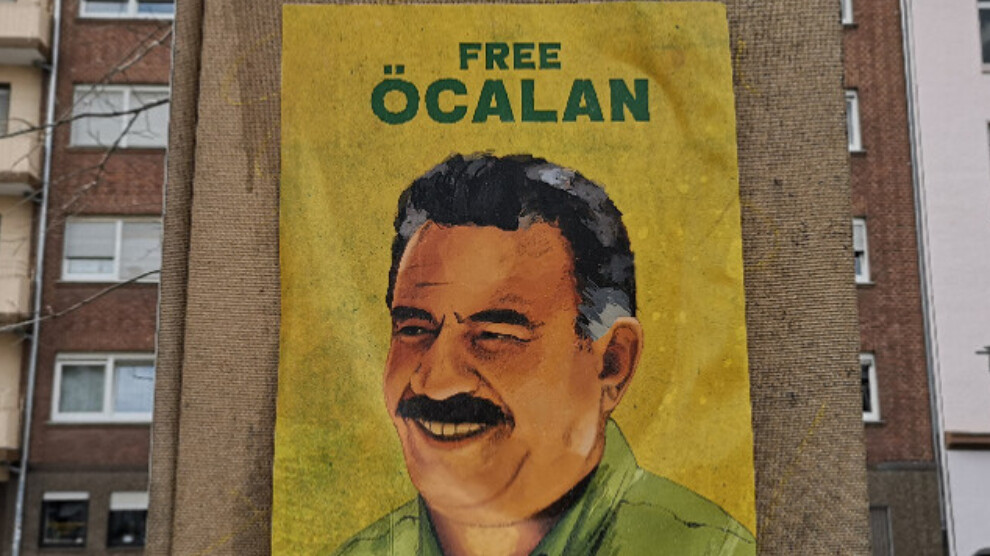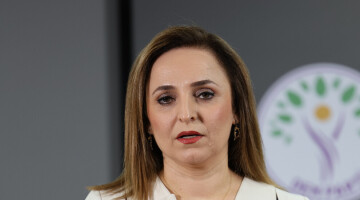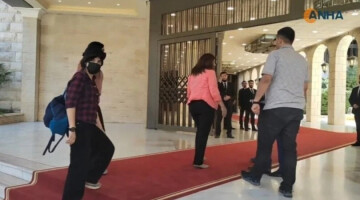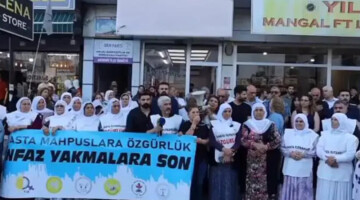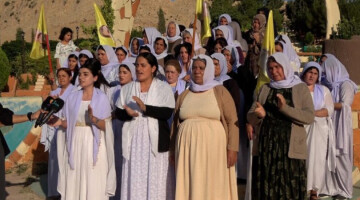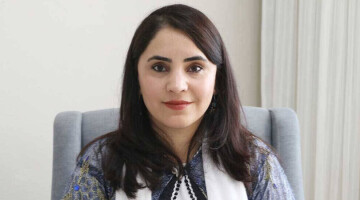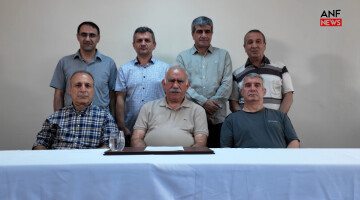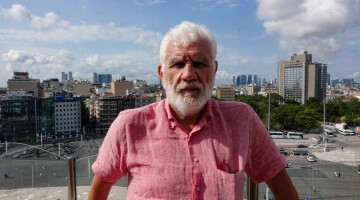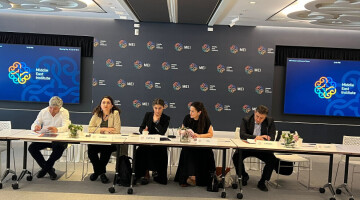The Imrali Peace Delegation consisted of ten members, including prominent politicians, trade unionists, academics, lawyers, and social movement activists, hailing from a diverse array of countries, including Iceland, India, Italy, the US, and the UK.
On the occasion of the 22nd anniversary of the abduction of the Kurdish freedom movement, Abdullah Öcalan, the delegation met online, due to the coronavirus pandemic.
The delegation sought to continue the tradition of former delegations who have come to Turkey in recent years in support of the reopening of the peace process between the Turkish authorities and the Kurdish leadership, which was abruptly ended in 2015.
The delegation has now published a full report of their fact-finding mission.
The report underlines that the “Imralı Isolation System Again and again, our interlocutors linked the deterioration of human rights across the country to the intensification of the regime of isolation on Mr. Öcalan. “The İmralı system,” they contend, “has not only spilled over to other prisons but in fact spread throughout all of society.” Such extension of the İmralı system of isolation signifies the institutionalization of fascism. The Constitution is not applied, the laws of Turkey are not applied, international law is not applied, international court decisions are not applied. Instead, impunity, tyranny, are the order of the day.”
The delegation also underlined that “silence and Complicity of the International Community Meanwhile, the international community stands by, for the most part, silently. And silence is complicity. The Committee for the Prevention of Torture (CPT) visited İmralı Island in May 2019, and published a report in August 2020, in which it called upon Turkish authorities, in no uncertain terms, “without further delay” to “carry out a complete overhaul of the detention regime applied to prisoners sentenced to aggravated life imprisonment in Turkish prisons …”
Not only have the Turkish authorities not been responsive to the CPT’s demand; they have, in fact, subsequently intensified the regime of isolation, introducing further restrictions on Mr. Öcalan’s contact with the outside world. Since April 27th, 2020, there has been no contact whatsoever with Abdullah Öcalan. And yet, quite inexplicably, on its most recent visit to Turkey in January 2021, the CPT did not insist upon another visit to İmralı Island nor show any signs of indignation about its recommendations being so contemptuously ignored.
The silence and complicity of the European institutions with the Erdogan regime was further highlighted by the recent visit of the President of the Court of Human Rights in Strasbourg to Turkey in September 2020, where he received an honorary medal in Istanbul University, the very place where purges of academics have been greatest. He then visited Mardin and had meetings there with “trustees” who the government had appointed after having sacked the city’s democratically-elected co-mayors.”
The full report can be read here. The biographies of the member of the Delegation can be found here
Here are the Recommendations for Action:
(1) It is vital that pressure continues to be put on the Turkish state to end the isolation of Öcalan. Pressure should be applied to international human rights mechanisms, particularly those of the Council of Europe. The Committee for the Prevention of Torture (CPT) should be urged to exercise its investigative capability to the fullest in the case of İmralı
(2) The international community, institutions, and governments should be encouraged to intervene against Öcalan’s isolation and against the isolation system that has spilled over into all of Turkish society, entailing massive human rights abuses on the part of the Turkish government.
(3) Appeals must be made to international NGOs, such as Amnesty International and Human Rights Watch, to take immediate action against the isolation of Öcalan and the general situation in Turkey.
(4) Solidarity among trade unions needs to be extended internationally.
(5) Social movements throughout the world should be encouraged to establish ties of solidarity with the Kurdish freedom movement and other opposition groups in Turkey. International women’s movements should be encouraged to express solidarity with the Kurdish women’s movement, in the form of written statements, video messages, and visits to Turkey.
(6) International women’s organisations should urge the Council of Europe to carefully monitor the situation related to violence against women in Turkey, and to exert pressure on the Turkish government to respect the Istanbul Convention on preventing and combating violence against women and 13 domestic violence, which was issued by the Council of Europe in May 2011 and signed by Turkey.
(7) Lawyers from around the world should be encouraged to file appeals to international bodies about the situation, and condemn the illegality of the isolation policy and the treatment of Kurdish people, as a means of applying pressure to the Turkish state.
(8) Strong efforts should be made to raise global awareness of the situation in Turkey.
(9) Populations around the world should be encouraged to take action.
(10) More delegations should be organised to visit Turkey and the Kurdistan region, consisting of all manner of people including politicians, academics, public figures, and trade union members.

